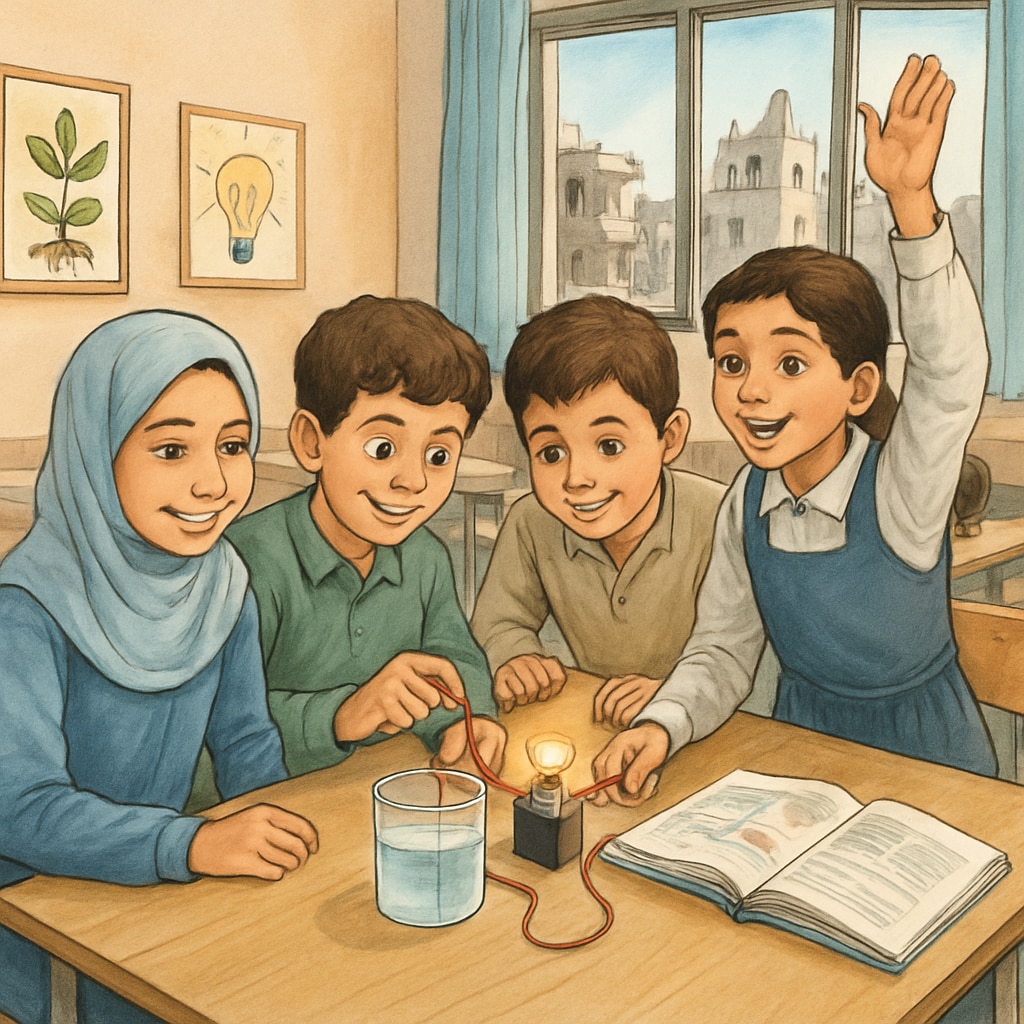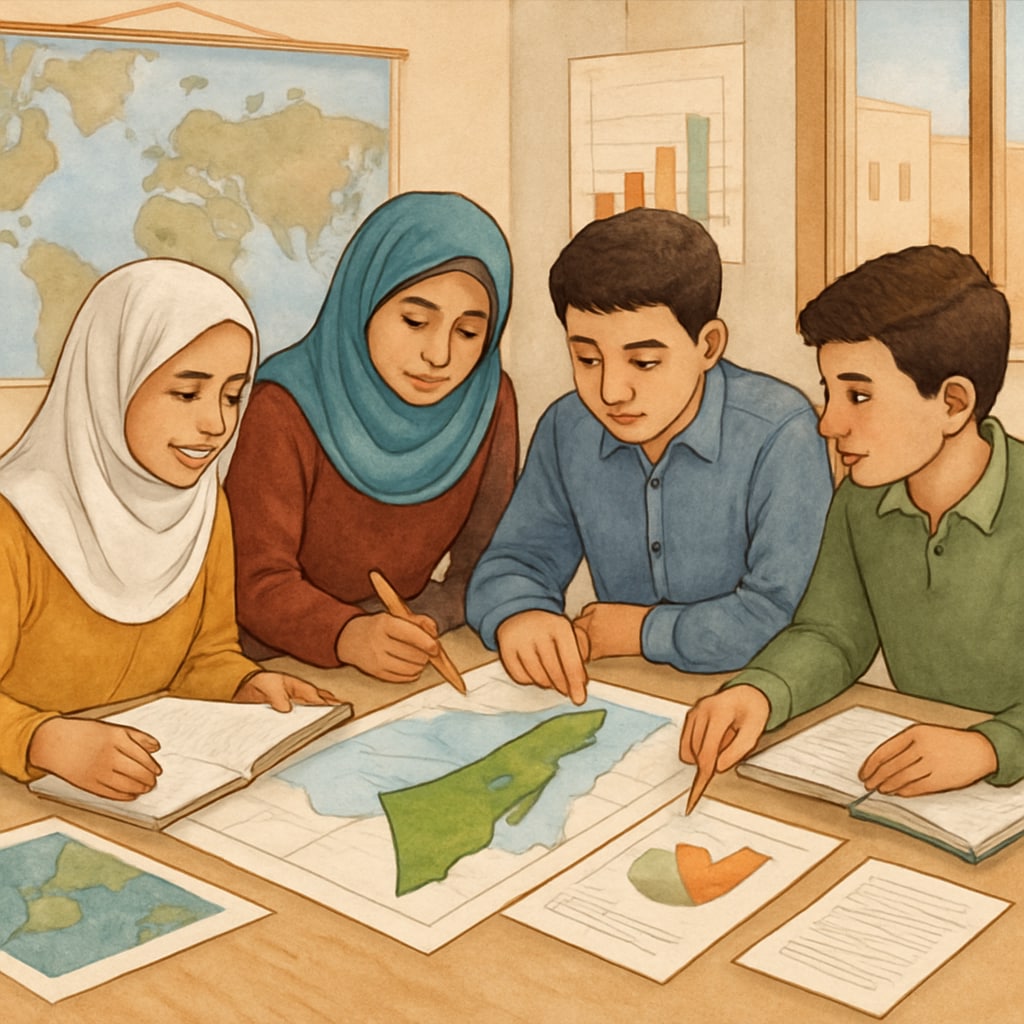Post-conflict reconstruction in Gaza presents an urgent challenge, particularly in rebuilding its education system. Designing a science and social studies curriculum tailored to the unique needs of Gaza schools is a critical step toward fostering peace, understanding, and progress. These curricula must address the region’s cultural, social, and environmental realities while promoting critical thinking and collaboration. In this article, we explore key principles and practical strategies for creating inclusive, future-oriented learning frameworks in science and social studies for Gaza schools.
Understanding the Need for Comprehensive Curricula in Gaza Schools
Gaza has faced decades of conflict, leaving its education system severely damaged. Schools often operate under resource constraints, and children frequently experience trauma. A robust science and social studies curriculum can serve as a foundation for rebuilding not only academic skills but also social cohesion and resilience. For example, science education can inspire innovation and problem-solving by addressing real-world challenges such as water scarcity and renewable energy. Social studies, on the other hand, can promote understanding of history, culture, and civic responsibility, fostering an environment of mutual respect and peace.

Key Principles for Designing Inclusive Science Education
Science education in Gaza must be both practical and accessible. To achieve this, educators and curriculum developers should focus on the following principles:
- Relevance: Introduce topics that align with Gaza’s unique challenges, such as sustainable agriculture, clean water technology, and public health.
- Hands-on Learning: Incorporate experiments and projects using locally available materials to ensure engagement despite limited resources.
- Critical Thinking: Encourage students to ask questions, analyze data, and develop solutions to real-world problems.
- Collaboration: Foster teamwork and communication skills through group activities and problem-solving tasks.
In addition, partnerships with international organizations can provide access to resources and training for teachers, ensuring the curriculum remains up-to-date and impactful.
Integrating Social Studies to Promote Peace and Understanding
Social studies curricula in post-conflict regions like Gaza should aim to heal divisions and build a sense of community. This requires a careful balance between teaching historical context and fostering forward-looking perspectives. Key components might include:
- Conflict Resolution: Teach students non-violent communication and problem-solving skills.
- Cultural Awareness: Highlight the region’s rich history and diversity to foster pride and mutual respect.
- Global Citizenship: Introduce concepts such as human rights, environmental stewardship, and international cooperation.
- Participatory Learning: Use role-playing, debates, and collaborative projects to make lessons engaging and relevant.
For example, students could participate in projects exploring how community-led initiatives can address local issues, such as waste management or public health campaigns.

Challenges and Opportunities in Implementing Curricula
Implementing these curricula in Gaza schools will inevitably face challenges, including limited resources, teacher shortages, and ongoing instability. However, these obstacles also present opportunities to innovate. For instance:
- Digital Learning: Utilize low-cost or free digital tools to supplement traditional teaching methods.
- Community Involvement: Engage parents and local leaders in curriculum development to ensure cultural relevance and buy-in.
- Teacher Training: Offer professional development programs focused on trauma-informed teaching and inclusive education practices.
Moreover, collaboration with international education organizations can provide much-needed funding, training, and materials to support these efforts.
Conclusion: Building a Foundation for a Brighter Future
Developing science and social studies curricula for Gaza schools is not merely an educational endeavor—it is a step toward rebuilding hope and stability in the region. By focusing on relevance, inclusivity, and sustainability, educators can empower a new generation of learners to address the challenges facing their communities. Ultimately, these curricula can serve as a foundation for peace, understanding, and progress, ensuring that education becomes a beacon of hope for Gaza’s future.
Readability guidance: This article uses short paragraphs, lists to summarize key points, and transitions for clarity. It minimizes passive voice and long sentences, ensuring accessibility for a broad audience.


